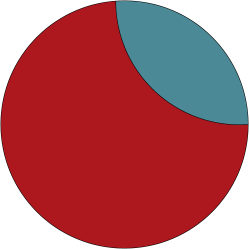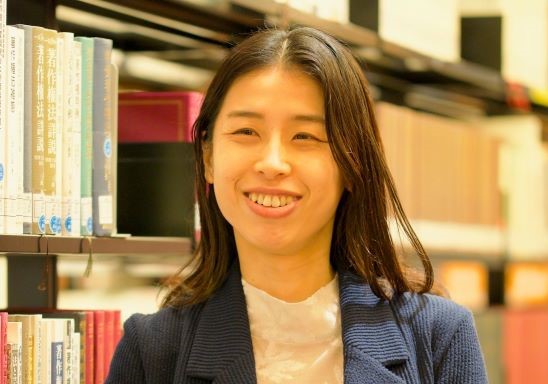RARA Associate Fellow
Exploring the “Indeterminate” Cognitive State in Understanding Literature and Art



Exploring the “Indeterminate” Cognitive State in Understanding Literature and Art
SCROLL
FELLOW PROFILE
Graduated from the Faculty of Science at Kyoto University in 2006 and earned a Master’s degree in Physics from the Graduate School of Science, Kyoto University in 2008.
Worked as a consultant and in research and development in the private sector. Graduated from the Graduate School of Letters at Osaka University in 2013.
Withdrew from Keio University’s doctoral program in Media and Governance in 2016 after obtaining credits and earned a Ph.D. in 2017.
Held research positions at Tamagawa University and Japan Advanced Institute of Science and Technology, and lectured at Waseda University. Since 2022, serving as an Associate Professor in the College of Letters at Ritsumeikan University, specializing in Cognitive Science.
Indeterminate Cognitive State and Its Effect on Literature and Art: The Possibility of Indeterminacy
In the fields of literature and art, uncertain understanding and interpretation have been noted to serve as a foundation for creativity and aesthetic experiences. This study aims to model the cognitive state characterized by “indeterminacy” in the comprehension of literature and art using quantum probability theory, and to scientifically explain, predict, and control it, along with its effects on sense of reality and emotional states. By empirically demonstrating the worth of indeterminacy, we seek to generate new perspectives on humanity and possibilities for culture and society.
Indeterminacy and ambiguity have long fascinated people in literature and art. However, these days, it is increasingly prioritized to obtain predetermined value quickly, such as seeking instant answers through web searches, emphasizing cost-effectiveness. This shift risks diminishing the appreciation for the worth of indeterminacy. Instead of perceiving indeterminacy negatively, I aim to demonstrate its value scientifically. This motivation led me to choose the current research theme.
I aim to explore and communicate the “value of indeterminacy” based on cognitive science with many researchers across various fields of study. By engaging a diverse range of researchers and research methods across natural sciences and humanities, I aim to create an environment that attracts and connects scholars with various academic and cultural backgrounds. This, in turn, facilitates emergent research opportunities, reverses the negative perspectives on indeterminacy, and enhances the credibility of our institution through academic and societal contributions.
I will focus on leading the CREST research project titled “Transition and Effects of Quantum Cognitive States: The Worth and Control of Indeterminacy.” The primary objectives include correlating external stimuli-inducing quantum cognitive states and their effects, establishing observation methods for quantum cognitive states, modeling the transition and observation of cognitive states using quantum probability theory (synthesizing results from CREST’s other groups), and communicating the value of indeterminacy to the academic and societal realms. We will focus on brief instances of indeterminate cognitive states at the first 2.5 years and address temporal sequences of indeterminate cognitive states at the second 2.5 years.
Studies in the humanities have indicated that indeterminacy can be a foundation for creativity. This research aims not only to adhere to established paths and predictable developments but also to positively respond to unknown and uncertain environments, and create novel value that can be the basis for academic, cultural, and societal activities.
Partnerships:
I envision attracting researchers from diverse fields, such as the humanities, sociology, and the sciences, who share an interest in the worth of indeterminacy. Additionally, I am interested in the field of artificial intelligence, which can deal with informatic features of indeterminacy in literature and art. In this regard, we are exploring semantic space models using quantum probability theory. I aim to gradually develop relationships with these partners, both within and outside of Ritsumeikan University, both domestically and internationally.
Research collaborations:
To take advantage of diversity, we emphasize respecting each other’s values and ensuring psychological safety. We value a healthy research environment that allows for weekends, holidays, and evenings off. Additionally, I adhere to the principle that active involvement as a player in experiments and analyses enhances the depth of research contemplation. Therefore, to ensure that efforts do not solely conclude with collaborative and supervisory tasks, I prioritize securing dedicated, unstructured research time as a player in my own right.



Latest Research Activity Report
-

Research Activity Report / Miho Fuyama
Associate Professor Miho Fuyama’s paper published in Entropy
2025 / 12 / 18
VIEW DETAIL
-

Research Activity Report / Miho Fuyama
Associate Professor Miho Fuyama and her colleagues’ paper has been published in Psychology of Aesthetics, Creativity, and the Arts
2025 / 12 / 10
VIEW DETAIL
-

Research Activity Report / Miho Fuyama
Associate Professor Miho Fuyama and her colleagues’ paper has been published in Philosophical Transactions of the Royal Society A
2025 / 12 / 10
VIEW DETAIL

